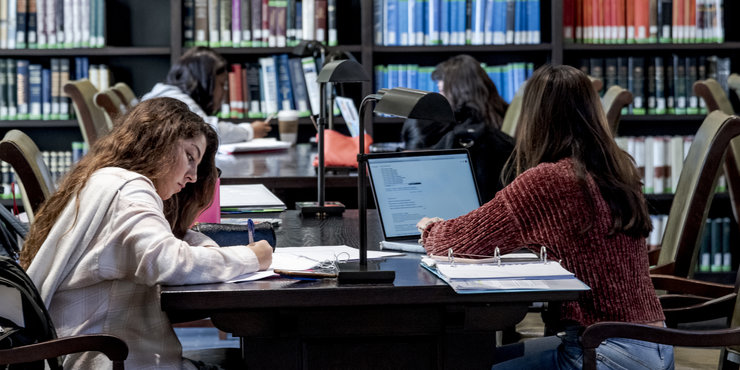Q&A with a College Admission Counselor
What are your tips for writing effective personal and supplemental essays?
The best use of the essays is to tell us something we would not otherwise know. Make sure to expand beyond what we have already learned from your transcript and activities list in the Common Application. What is an important character trait, aspect of your personality, or passion that simply can't be explained anywhere else? Make sure you are effectively communicating something of this nature through a strong example, and following through with an explanation of why this story encapsulates who you are and who you would be on our campus.
What sets Seaver College apart from other colleges/universities?
To me, what sets the undergraduate experience at Pepperdine apart is our unwavering commitment to a strong academic program, while simultaneously maintaining adherence to our identity as a Christian institution. At Pepperdine, academic excellence and Christian values are equally strong tenets of our University mission; we do not believe them to be mutually exclusive. Conversations and exploration of faith are encouraged in and outside of our classrooms. Because of our Christian identity and its importance to us, we keep an eye out for applicants' reflections on faith while reviewing applications.

Aside from grades, what does Seaver College tend to look for in an applicant?
We are looking for students who are going to excel at Pepperdine in all ways—academically, socially, and spiritually. Academics do weigh most heavily in our admission decisions. Seventy percent of the criteria used in our decisions are composed of academic factors, which are not just limited to grades, but also test scores, course rigor, and trends in academic performance over the course of high school. The remaining 30 percent of the criteria is made up of those qualitative factors that can't quite be put into a GPA or test score. How do you engage in your high school community? What activities are you involved in, or leadership positions do you hold? How do we see you living out our Pepperdine values of purpose, service, and leadership? All of these are things are considered in that 30 percent qualitative analysis of an application.
Are there different admission requirements for certain departments or majors?
Because students at Pepperdine do not have to declare their major until sophomore year, we do not admit students to certain majors, and there are no differing admission requirements as a result. Rest assured that you are not committed to the major you indicate on your application! The exception to this rule is for students interested in one of our fine arts majors, in which case there is an audition or portfolio submission requirement.

When applying as a transfer student, what do you look for most in an application?
We look for the same criteria we look at in first-year applicants through our holistic review process—we still want to see students who will be a strong fit at Pepperdine in and outside of our classrooms, who are servant-leaders, and desire to contribute to our faith-based community. Academically, we want to see a strong academic performance, particularly in the most recent academic year, with no Ds, Fs, or withdrawals. We accept transfer applicants at any point during their time in college, but for students with more than 30 units at the time of application, we will not require a standardized test (either ACT or SAT score).
How are students supported after graduation?
Pepperdine students overwhelmingly find success after graduating. Last year, 93 percent of graduates were employed, in graduate school, volunteering full time, or in the military within six months after graduation, demonstrating that students are finding their next step relatively quickly. I would attribute our high employment rate to our fantastic Pepperdine Career Services office, alumni network, and professor mentors who want to ensure that students are getting career experience and opportunities while they are still students, and that they are prepared for life after Pepperdine.